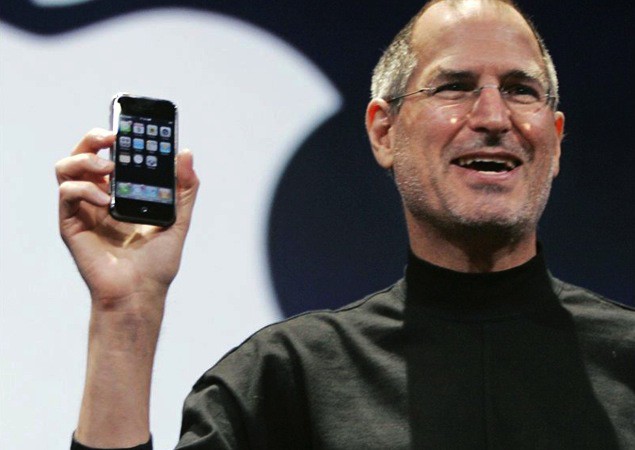Everything you want is on the other side of fear- The phoenix must burn to emerge
Inspiration from the Failures of few Great Leaders
Failure can be devastating, but only if you let it be.
Here are some of the lessons you can learn from the failures of four great leaders.
Failure
is a necessary experience if you want to eventually be successful. That may
seem like an illogical statement, since failure and success are generally
considered complete opposites. However, the experience of failure is both
enlightening and motivating as long as you view it with the right perspective;
learning from your mistakes and working harder to achieve your goals are both
important ingredients in finding success.
In
the moment, failure can range from disheartening to devastating, depending on
the severity of the experience. As a young professional, or an entrepreneur, or
anybody trying to achieve something significant, failure has the potential to
hold you back indefinitely--but only if you let it. Take inspiration from the
hundreds of radically successful individuals who reached their peak only after
multiple rounds of significant failure. Here are some of their stories.
Bill
Gates

Bill
Gates is one of the most recognizable figures in the tech industry, responsible
for creating Microsoft and currently standing as one of the wealthiest people
on the planet. Many people attribute his success to a kind of luck or sudden
twist of fortune; he had a great idea at just the right time during the
technology boom, and got rich developing it to perfection. But the reality is,
Bill Gates experienced a crushing failure before he had anything to do with
Microsoft. Originally, Gates created a product called Traf-O-Data, which
analyzed data from traffic tapes. The product didn't work properly, and the
company never took off, so Gates decided to try something else.
The
Lesson:
Traf-O-Data
never had any hope of being successful, but that was no reflection on Gates's
potential. if your idea, even though it seems great, doesn't pan out the way
you thought it would, remember that you still have plenty of ideas and
opportunities ahead of you.
Stephen
King

One
of the most recognizable novelists of the modern era, Stephen King is widely
regarded as a master of horror writing. Despite now having dozens of
financially, critically, and popularly successful titles in circulation, King's
first novel, Carrie, was almost a failure. The novel was rejected 30 times
before it was finally accepted and published, leading to King's breakout
career. King considered quitting, and many people would have quit, but his
perseverance led to greatness.
The
Lesson:
Simple
adjustments can turn a failure into a success. Revising your idea, targeting a
different audience, or redefining your brand identity could all easily take a
failed concept and turn it into something more successful.
Steve
Jobs

A
mastermind of technological innovation and corporate vision, Steve Jobs is
responsible for making Apple the company it is today. However, his past is
littered with failures, setbacks, and crushing defeats. Jobs started Apple in
1976 and the company began to take off, but after an unsuccessful product
launch in 1985, Jobs was kicked out of his own company. Most ordinary people
would have given up at that point, but instead, Jobs founded a new company
called NeXT. NeXT was considered unsuccessful as well, at least for a time,
until it caught the eye of a struggling Apple in 1997. Apple purchased the
company and brought Jobs back into a leadership position, which he used to
develop and launch Apple's breakthrough products, including the iPod, iPhone,
and iPad.
The
Lesson:
Perseverance
is everything. Because he committed himself to doing great things, Jobs was
able to work past his personal and professional failures, and eventually leave
behind a monumental and unprecedented legacy.
Walt
Disney

Today,
Disney is an entertainment giant of nearly unfathomable scale. It holds
hundreds of properties, including Marvel Studios and the Star Wars franchise,
and continues producing record-setting films and operating theme parks around
the globe. Behind the initial company was the innovative, imaginative genius of
Walt Disney himself. While many people recognize his earliest successful films,
few know the difficulties he faced prior to making them. Disney's first
animation studio was dissolved, and Disney could not afford to pay his rent.
Even after the successful premiere of Snow White, many of Disney's early
movies--classics like Pinocchio and Fantasia--were financial failures.
The
Lesson:
The
strength of an idea cannot be objectively measured by its relative success or
failure. Most of Disney's earliest films are considered masterpieces, even
though commercially, they were objective failures. Even Disney's first studio,
which went under, likely produced some amazingly high-quality work.
The
next time you experience failure, on a small or large scale, remind yourself
that you're in good company. In your own life, ask anyone you feel has been
successful in achieving their goals or living their dream if they've ever
experienced failure. The answer is, invariably, yes. Failure is never the end
of the road--it is only a small step in the greater journey. Pick yourself up,
learn what you can from the experience, and force yourself to move on.
Thanks for reading my blog.
Are you Leading?
Dr. Deepak A. Patil
CEO, Lead ThySelf

Comments
Post a Comment